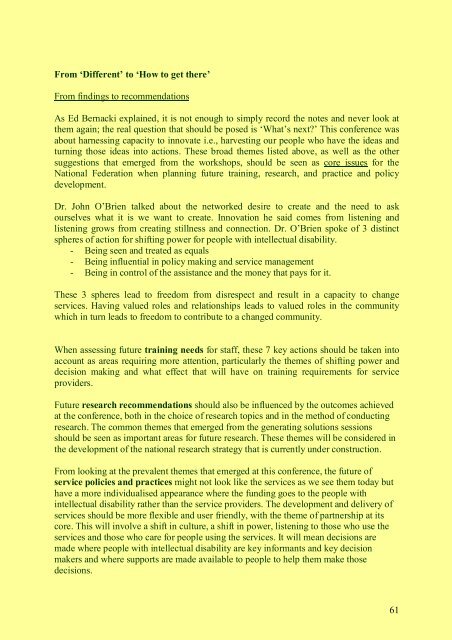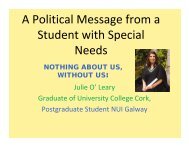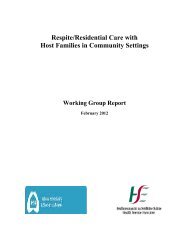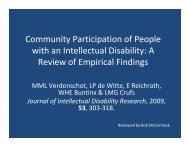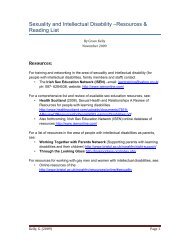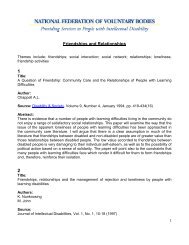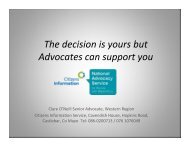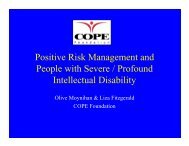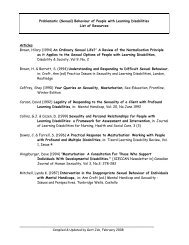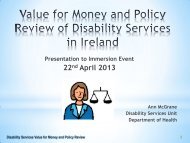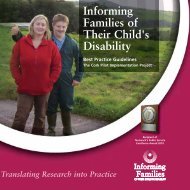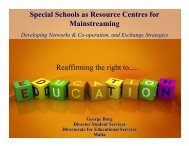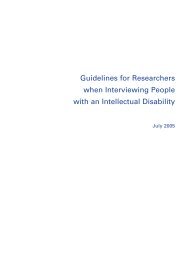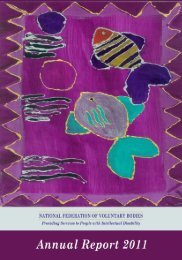Conference Proceedings Report - Final Draft - National Federation ...
Conference Proceedings Report - Final Draft - National Federation ...
Conference Proceedings Report - Final Draft - National Federation ...
Create successful ePaper yourself
Turn your PDF publications into a flip-book with our unique Google optimized e-Paper software.
From ‘Different’ to ‘How to get there’<br />
From findings to recommendations<br />
As Ed Bernacki explained, it is not enough to simply record the notes and never look at<br />
them again; the real question that should be posed is ‘What’s next?’ This conference was<br />
about harnessing capacity to innovate i.e., harvesting our people who have the ideas and<br />
turning those ideas into actions. These broad themes listed above, as well as the other<br />
suggestions that emerged from the workshops, should be seen as core issues for the<br />
<strong>National</strong> <strong>Federation</strong> when planning future training, research, and practice and policy<br />
development.<br />
Dr. John O’Brien talked about the networked desire to create and the need to ask<br />
ourselves what it is we want to create. Innovation he said comes from listening and<br />
listening grows from creating stillness and connection. Dr. O’Brien spoke of 3 distinct<br />
spheres of action for shifting power for people with intellectual disability.<br />
- Being seen and treated as equals<br />
- Being influential in policy making and service management<br />
- Being in control of the assistance and the money that pays for it.<br />
These 3 spheres lead to freedom from disrespect and result in a capacity to change<br />
services. Having valued roles and relationships leads to valued roles in the community<br />
which in turn leads to freedom to contribute to a changed community.<br />
When assessing future training needs for staff, these 7 key actions should be taken into<br />
account as areas requiring more attention, particularly the themes of shifting power and<br />
decision making and what effect that will have on training requirements for service<br />
providers.<br />
Future research recommendations should also be influenced by the outcomes achieved<br />
at the conference, both in the choice of research topics and in the method of conducting<br />
research. The common themes that emerged from the generating solutions sessions<br />
should be seen as important areas for future research. These themes will be considered in<br />
the development of the national research strategy that is currently under construction.<br />
From looking at the prevalent themes that emerged at this conference, the future of<br />
service policies and practices might not look like the services as we see them today but<br />
have a more individualised appearance where the funding goes to the people with<br />
intellectual disability rather than the service providers. The development and delivery of<br />
services should be more flexible and user friendly, with the theme of partnership at its<br />
core. This will involve a shift in culture, a shift in power, listening to those who use the<br />
services and those who care for people using the services. It will mean decisions are<br />
made where people with intellectual disability are key informants and key decision<br />
makers and where supports are made available to people to help them make those<br />
decisions.<br />
61


